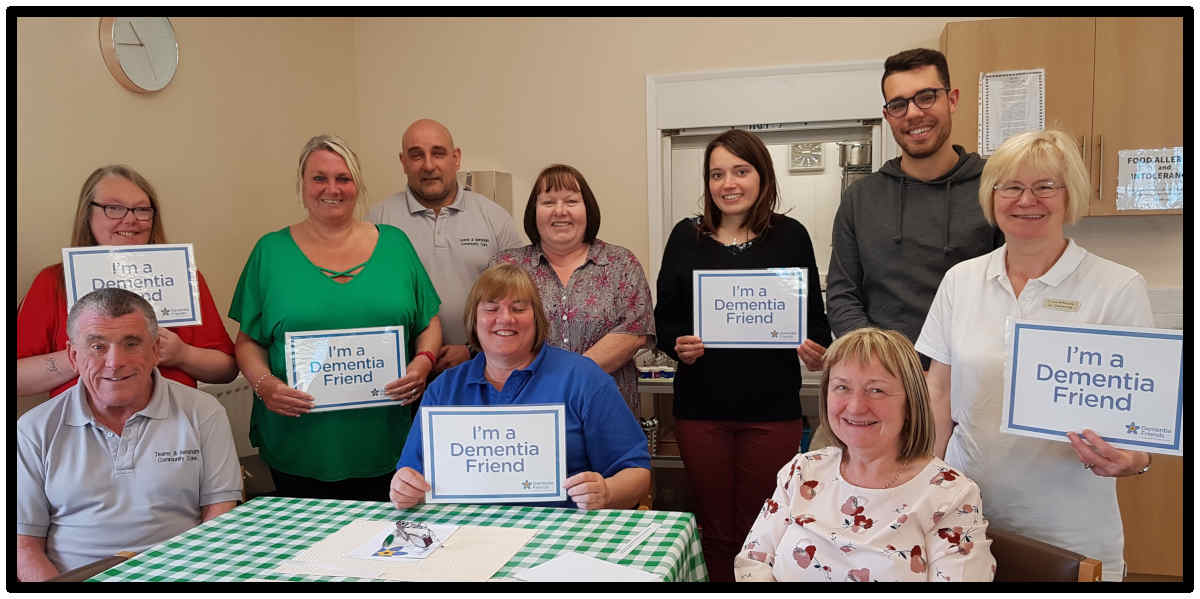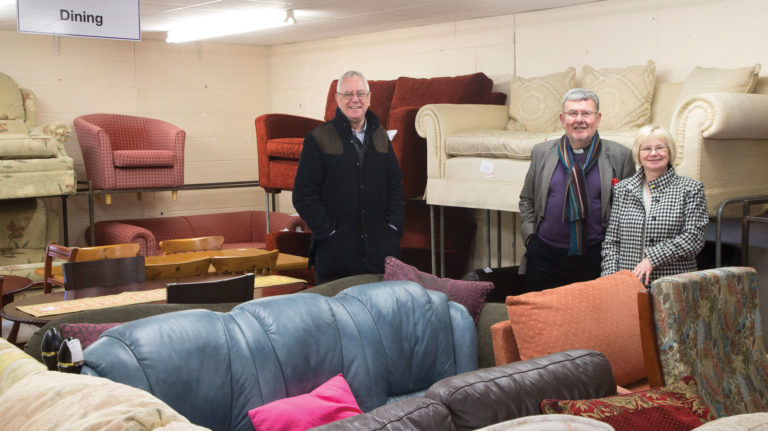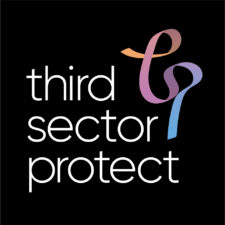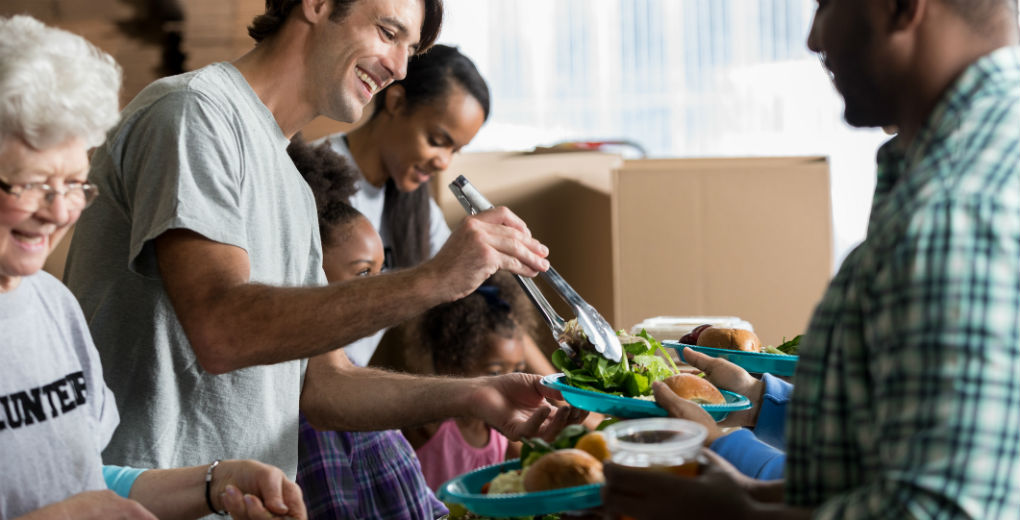
Meet The Charity- Teamwork Development Trust
(Pictured above- Teams and Bensham Community care)
We’re acutely aware of the things that make one charitable organisation different from another at Third Sector Protect.
This is no more the case than with the second focus of our Meet the Charity Series, Teamwork Development Trust. This North East-based trust has adapted its services with a number of different “arms” – each one of which exists to plug a support gap or a step up to an opportunity.
Project Development Officer Michelle Scott gives her inside view of what this multi-layered support looks like.
How does Teamwork Development Trust work?
The trust is a community interest company which has developed organically over the past 30 years. It acts as a central provider for three charitable organisations. We look after payroll, accounting, finance, HR, fundraising, policy and project development and management and supervision of staff. Each service within the trust pay for these services and this is a much more cost effective way of operating rather than each charitable organisation having the services in house.
This works really well, it keeps us all together and it means we can share resources (excluding financial resources) such as time, knowledge and experience. If one charity is having a problem we all get involved to try and help, and we always promote each other’s services to our beneficiaries.
Can you tell us about the organisations which come under the trusts’ remit?
Teams & Bensham Community Care was established first. It is a lovely day care service which offers lunch clubs, exercise classes, walking groups and trips out for about 150 older people, predominantly who are socially isolated or vulnerable.
Next we established Foundation Furniture, a traditional community furniture project which collects unwanted, usable household items and makes them available for people in need. Beneficiaries pay towards their items at a low cost. A sofa for example costs £39 to a household who is struggling financially.
We also have a Crisis Recovery service for people who might be suffering extreme hardships, which means they can get that furniture free of charge if they have been rehomed after homelessness or fleeing abuse for example.
Foundations helped about 850 households overall last financial year, and about 40% of those households are children living in extreme poverty. We also offer an ethical weekly payment service for new furniture to help vulnerable people avoid lure of door step lenders and loan sharks.
Happy to Help was established in 2000 and is a traditional home help service for older people in Gateshead. We provide cleaning, bill paying, shopping and pension collection. We also offer a one-to-one support service to accompany older people while they go shopping or go for a walk, for example. They have about 22 front line staff who deliver that service, the largest team within the trust, and they help about 300 people a year.
How did you get into this role?
I used to work for Gateshead Council and my role there was to provide support to social enterprises and charities in Gateshead. The trust and all of the charitable organisations belonging to it were the very first services I supported in my role there, which I left in 2010 to spend some time raising my little boy. When Bernie [Gill], the manager of the trust, rang to invite me to apply for a vacancy 18 months later, I immediately applied.
I started with Foundations first who were experiencing a large core funding cut at the time. They were traditionally a free service up until that point so they had to totally change their pricing structure, and it was literally make or break. I came into Foundations to look at ways to boost their own income and a year later, once they were more stable, we secured further funding for my role to provide support across the trust’s charitable organisations.
Luckily the other two organisations haven’t experienced as serious a situation however they all can have various challenges going on – luckily not all at once. With working with the trust for so many years previously, I already knew how the projects operated and what the culture was so it was easy to hit the ground running.
Are there any misconceptions about what you do?
I think it’s a hard job to describe because, for all we have a job description, you’ll start each morning with a to-do list for that day but then something can happen and transform your day (or week) entirely. Some days I’m doing funding bids and then the next I might be sending leaflets out to promote our services or suddenly advertising a vacancy. What we do very much depends on the needs of each organisation on any given day.
Have you seen any changes in the charity sector since you’ve worked in it?
The third sector’s main support service, GVOC, (Gateshead Voluntary Organisation Council) ceased to operate about five years ago, so the nature of local support changed. The council has had a significant challenge of trying to maintain their financial and in-kind support to the third sector on a tight budget too.
As a result of local support changing, and budgets becoming tighter, we have had to become more resilient and business minded. It means we are now less reliant on funding compared to 6 years ago, which is positive because we feel our services are becoming a little more sustainable each year.

(Pictured above- Foundations Furniture)
Describe a typical day at Teamwork Development Trust
I try to allocate a day for each service, so today is dedicated to Teams and Bensham Community Care for example.
I work from 9.30am until 3pm every day and can work from home or the office. I tend to work from the main head office or from home if I have large funding bids or monitoring reports to write.
Typically my day involves meetings with staff or our directors/trustees, preparing information for potential or current funders or promoting our services. I try to do some online marketing whenever I can too on our social media pages.
I like to get any small/odd jobs done first then I like to dedicate the rest of the day to larger pieces of work such as report/policy writing, advertising any job vacancies that have arisen, funding bid writing or updating monitoring systems to see how our current projects are doing.
What do you find most challenging?
Although we’re more sustainable now, two of our charities still rely on some funding and it is always in the back of our minds that if funding were to suddenly stop or be cut then we would have problems that would have to be addressed immediately.
Every year around about September/October time, we have to look at any salaries that require funding for the next financial year. Luckily there aren’t many salaries that rely on funding, as we generate income or have contracts in place, but this is always the busiest and most challenging time of my year to ensure that any post relying on funding is continued. We all work very closely and all get on so well, so it’s a lot of responsibility to make sure that nobody loses jobs that they work very hard at.
You often don’t get a lot of notice either for core funding cuts. We tend to get confirmation in February or March time, sometimes earlier, and when you’re working on a financial year from April to March, that doesn’t leave you with a lot of time to try and find something else to fill a funding gap if one arises.
New funding usually takes between three and six months to secure, not including the time taken to write the application to begin with. If you find out at close to the start of a new financial year that funding has been reduced it can be very difficult. We’re very lucky that we have got good reserves; not anywhere near as much as we need, but enough to give us breathing space for a few months while we try to get alternative funding. We also get lots of other support from our core funders, particularly the local authority, to help us through any funding cuts. They also support us all year round to promote what we do to local people and help us to implement new services that can boost income which can then be used to keep the charities going.
Our services are all needed in the community and the results are very clear. We have good social impact calculations that show social, environmental and economical results very well, so we can usually demonstrate the good work we do.
For instance, for every £1 invested into the Trust, we turn it into over £4 in terms of local impact. When funders and contracts see we’re quadrupling the amount of benefit their financial input gives, and you start to look at larger conversions of £100,000 to £400,000, that gives it the edge.
What do you like most?
The best part of what we do is seeing our social value reports which really set out how people are benefiting.
We always get lovely comments from those we help and it can be the simplest of things that can really make a difference to somebody’s life.
Then we see the ripple effect of that, such as how much we save the NHS and the council by helping people to have better health and wellbeing or because we’re diverting furniture from landfill therefore easing pressure on landfill services and reducing CO2 emissions for example. Sometimes it’s really staggering to see the scale of the impact our various projects have.
I think day-to-day we don’t always think about the wider impact of what we do, but when we read our annual social value reports, it highlights how everyone works really hard together to make sure people have the services that make that difference.
Is there anything that you would change?
I wouldn’t change anything about my role or Teamwork. I have excellent work-life balance and the organisational culture is fantastic.
Everybody supports each other excellently which can really take the pressure off, particularly when we sometimes feel like we are spinning several plates at once within the different services. I think this is the main reason why Teamwork has been successful for 3 decades.
If there is one thing I would change it would be for more financial sustainability so that everyone had job security. We feel that funding will become harder to get over time so we’re always looking at more ways of generating income to put back into each service so that our team and our beneficiaries have some assurance.
What are you hopes for the future?
In its 30 year history, Teamwork still have their core ethos of helping people and they’ve never moved away from that, despite developing different services. To survive, we have had to become more business focused, but we haven’t lost sight of those values. I hope that we can maintain those values in the future as the challenges grow for small charitable organisations like ours.
Teamwork has adapted to the needs of the local community over the years, quickly identifying which services are most needed and, just as importantly, they have identified when services have met their purpose and are no longer needed. I hope we co ntinue to have the financial means, through a mix of our own generated income, contracts and funding, to help vulnerable people for another 30 years and more.
Find out more about the work of Teamwork Development Trust and the charitable organisations it manages by visiting their dedicated pages on OurGateshead.org:
- Teams and Bensham Community Care
- Foundations Furniture
- Happy to Help
Too see our previous instalment of our Meet The Charity series, follow the link below:







